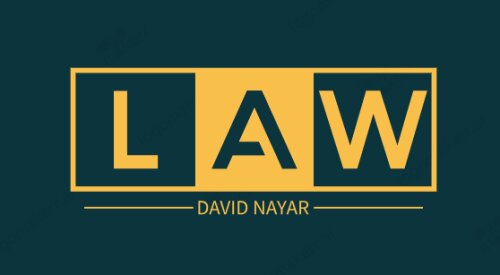Best Collaborative Law Lawyers in Singapore
Share your needs with us, get contacted by law firms.
Free. Takes 2 min.
Free Guide to Hiring a Family Lawyer
Or refine your search by selecting a city:
List of the best lawyers in Singapore
About Collaborative Law in Singapore
Collaborative Law in Singapore is an alternative dispute resolution process primarily used in family law matters such as divorce, custody arrangements, and division of marital assets. The approach emphasizes cooperation between the parties involved and their legal representatives, aiming to reach a consensual agreement without the need for litigation. This process is characterized by open communication, mutual respect, and a commitment to shared problem-solving. The Singapore judiciary supports this method as it often results in less adversarial and more cost-effective resolutions.
Why You May Need a Lawyer
There are several situations where individuals may require legal help within the framework of Collaborative Law:
- When undergoing a divorce and seeking an amicable settlement regarding child custody, property division, or spousal support.
- If there is a need to modify existing divorce agreements, such as changes in custody arrangements due to relocation or changes in financial circumstances.
- In cases where preserving a relationship is crucial, such as disputes among family members or business partners.
- When parties desire a more private and confidential resolution process compared to traditional court proceedings.
Local Laws Overview
Singapore's legal framework for Collaborative Law is primarily integrated within family law. Key features include:
- Family Justice Courts: These courts support non-adversarial conflict resolution processes and offer resources to help families navigate disputes with minimal distress.
- Mediation Act: Encourages and facilitates the settlement of disputes via mediation, aligning with the principles of collaborative law.
- Lawyers’ Role: Lawyers act as facilitators rather than adversaries, prioritizing the parties' interests and collaborative problem-solving over litigation.
Frequently Asked Questions
What is Collaborative Law?
Collaborative Law is a legal process aimed at helping parties resolve disputes amicably without going to court by working together with their lawyers and other professionals.
How does Collaborative Law differ from traditional litigation?
Collaborative Law focuses on cooperation and problem-solving rather than adversarial litigation. It often leads to quicker, less costly, and more satisfactory resolutions for both parties.
What types of disputes can be resolved through Collaborative Law?
While primarily used in family law, Collaborative Law can also address civil disputes such as business disagreements and employment conflicts where ongoing relationships are a priority.
Is Collaborative Law legally binding?
Yes, agreements reached through Collaborative Law can be made legally binding through consent orders filed with the court.
Who participates in the Collaborative Law process?
Each party works with their lawyer, and sometimes other professionals like financial advisors or child specialists, to assist in negotiations.
Can Collaborative Law be applied if one party is uncooperative?
No, Collaborative Law requires the voluntary and open participation of both parties. If one party is uncooperative, traditional litigation may be more appropriate.
What happens if the collaborative process breaks down?
If the process fails, parties typically proceed to litigation. Often, new lawyers are involved as those from the collaborative process cannot partake in the subsequent litigation.
Is Collaborative Law confidential?
Yes, the process is designed to maintain privacy and confidentiality in negotiations and settlements.
How long does the Collaborative Law process take?
The duration varies based on the complexity of issues and parties' willingness to cooperate. However, it is generally faster than litigation.
What are the costs associated with Collaborative Law?
Costs can vary but are usually lower than traditional litigation due to reduced court fees and faster resolutions.
Additional Resources
For those seeking further information about Collaborative Law in Singapore, the following resources may be helpful:
- Family Justice Courts: Offers resources and guidance on family disputes and Collaborative Law.
- Law Society of Singapore: Provides access to professional legal advice and mediation services.
- Singapore Mediation Center: Offers mediation and dispute resolution services, aligning with collaborative principles.
Next Steps
If you're considering Collaborative Law for your dispute, begin by consulting a lawyer experienced in this area. They can assess your situation, explain the process, and help you commence the collaborative process. You can contact the Law Society of Singapore for referrals or search online for local practitioners specializing in Collaborative Law. Start gathering relevant information and documents related to your case to ensure a productive initial meeting.
Lawzana helps you find the best lawyers and law firms in Singapore through a curated and pre-screened list of qualified legal professionals. Our platform offers rankings and detailed profiles of attorneys and law firms, allowing you to compare based on practice areas, including Collaborative Law, experience, and client feedback.
Each profile includes a description of the firm's areas of practice, client reviews, team members and partners, year of establishment, spoken languages, office locations, contact information, social media presence, and any published articles or resources. Most firms on our platform speak English and are experienced in both local and international legal matters.
Get a quote from top-rated law firms in Singapore — quickly, securely, and without unnecessary hassle.
Disclaimer:
The information provided on this page is for general informational purposes only and does not constitute legal advice. While we strive to ensure the accuracy and relevance of the content, legal information may change over time, and interpretations of the law can vary. You should always consult with a qualified legal professional for advice specific to your situation.
We disclaim all liability for actions taken or not taken based on the content of this page. If you believe any information is incorrect or outdated, please contact us, and we will review and update it where appropriate.
Browse collaborative law law firms by city in Singapore
Refine your search by selecting a city.














